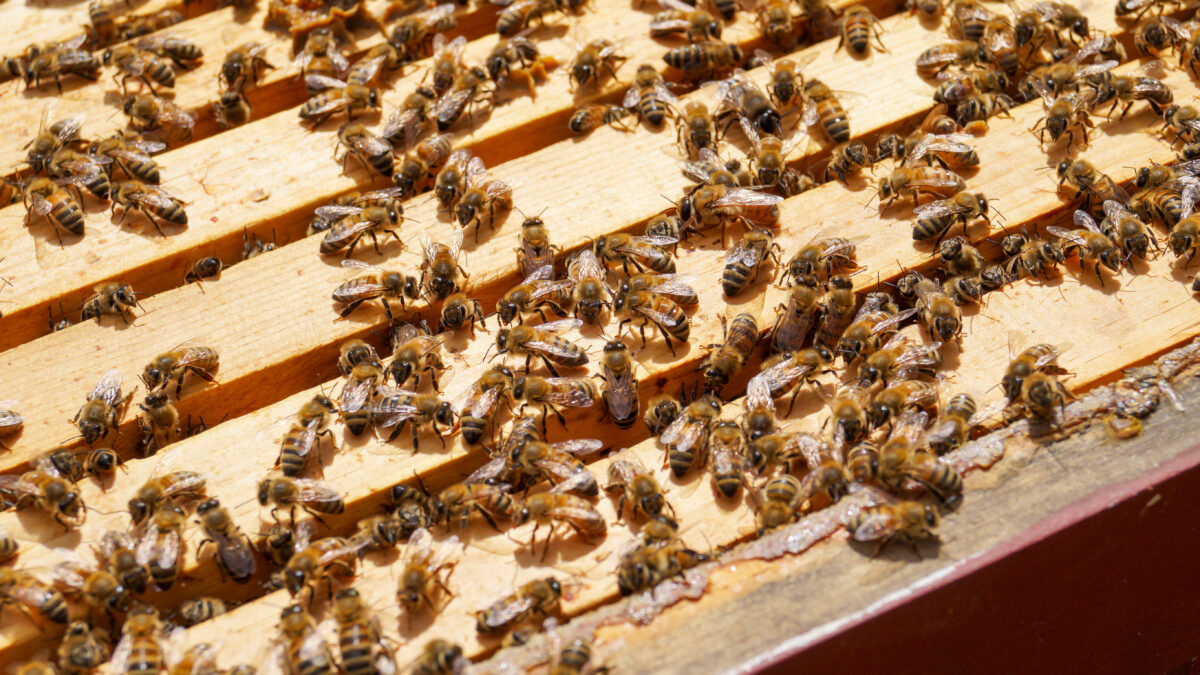The Buzz Around Pollinators
Zippy Duvall
President

photo credit: Wisconsin Farm Bureau, Used with Permission
Zippy Duvall
President
Next week (June 17-23) is National Pollinator Week, a time dedicated to recognizing and celebrating the tiny heroes who play a massive role in our food supply. Picture this: a world without fresh strawberries, blueberries, watermelon or crisp apples. Pretty gloomy, right? Thankfully, we have bees, butterflies and other pollinators who are responsible for the fertilization of many fruits, vegetables and nuts.
A prime example of the importance of pollinators is seen in California’s almond industry. Did you know that almond trees are 100% dependent on bee pollination? Without bees, the tree can’t produce, and we would lose almonds altogether. This need for pollinators also goes beyond the almond orchards, as more than 100 crops are dependent on insect pollination. Simply put, without our pollinators, our diets would lack diversity and agricultural yields would plummet, affecting food security and economies worldwide.
As we celebrate National Pollinator Week, let us recognize the incredible role these creatures play.
Fortunately, farmers nationwide are already aware of this vital relationship with pollinators and, for decades now, have been working to create environments where these small but mighty creatures can thrive. Millions of privately owned farm and ranch acres are enrolled in voluntary federal conservation programs through the farm bill. And beyond that farmers across the country are committed to finding innovative ways to help boost pollinator habitats. It’s a mutually beneficial relationship where everyone wins – crops flourish, the soil is healthy, and we all get to enjoy a bounty of fresh and nutritious food.
Take the Midwest, for example, where farmers have ramped up the planting of milkweed to support the population of monarch butterflies. Monarchs rely on milkweed for breeding and as a food source during their long migration from Mexico to Canada. These conservation practices not only support pollinators, but also enhance soil health and reduce erosion.
Similarly on the west coast, the California Farm Bureau, with the support of their partners, has recently received $5 million in funding from the California Department of Food and Agriculture to implement climate-smart farming practices and create safe pollinator habitats in citrus groves.
Across the country, farmers are taking on the charge to share the importance of pollinators and ensure they are thriving. One great example of this is Ron Rynders, a beekeeper in Iowa, who is spearheading an effort to bring back native flowers to his region and ultimately increase pollinator habitats.
Another great example is North Carolina Farm Bureau member, Kamal Bell, who not only works as dedicated farmer and beekeeper, but also has created an innovative STEM program, where he educates the next generation about the importance of pollinators in agriculture.
From planting pollinator-friendly habitats to implementing conservation practices, there are a variety of great ways farmers are actively working nationwide to create environments that support these essential little workers. So, as we celebrate National Pollinator Week, let us recognize the incredible role these creatures play, and the hardworking farmers who work with them to keep our food supply sustainable and our land healthy. It's a beautiful partnership that makes every bite on our plates a little sweeter.